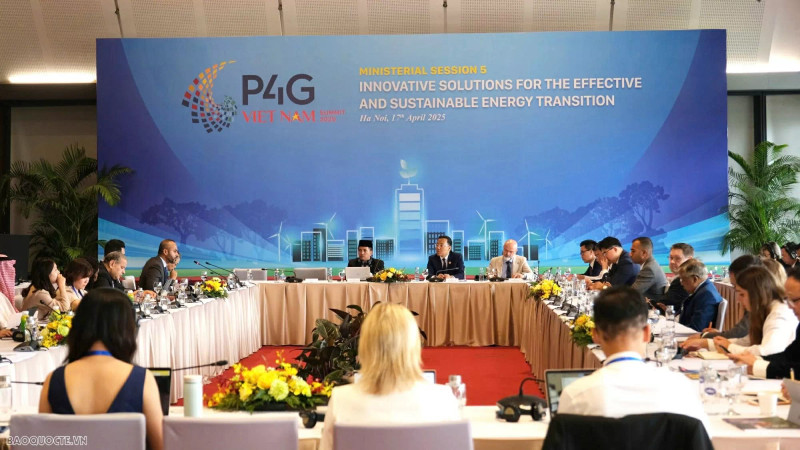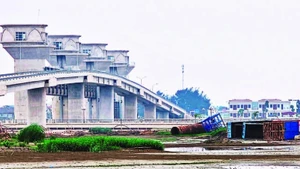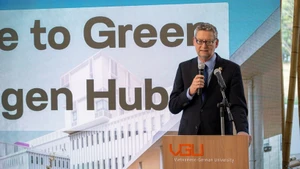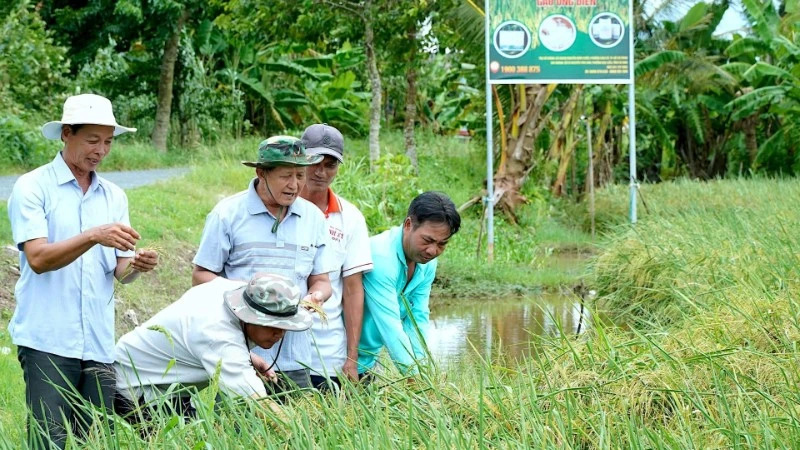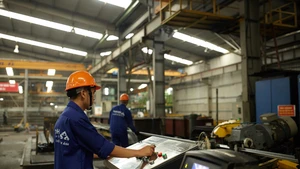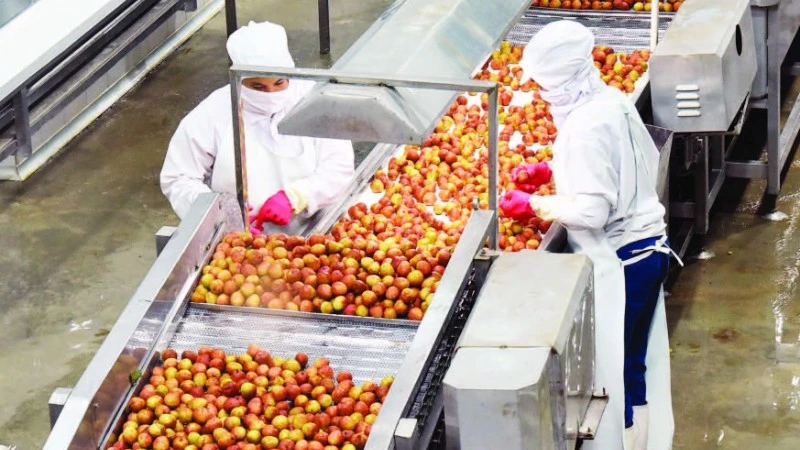Ensuring national energy security and providing efficient renewable energy
Speaking at a ministerial session entitled “Innovative Solutions for the Effective and Sustainable Energy Transition” hosted by the Ministry of Industry and Trade within the P4G 2025 Summit, Trinh Minh Hoang, Vice Chairman of the Ninh Thuan Provincial People’s Committee, stressed that fossil energy sources are increasingly depleted, and environmental pollution caused by fossil fuel power plants is a serious issue.
In this context, developing renewable energy projects will play an important role in the electricity supply system, ensuring national energy security, providing clean electricity for socio-economic development, while creating new production value and contributing to Vietnam’s commitment to reducing greenhouse gas emissions, thereby protecting the environment.
“Ninh Thuan has been taking new directions and strongly transforming its socio-economic development with the goal of building the province into the country’s renewable energy centre,” he said.
Sharing about an effective green energy model, Le Manh Cuong, Vice Chairman of Vietnam National Industry - Energy Group (PVN), stated that amid global challenges such as climate change, resource depletion, and urgent need for green development, energy transition is not only an inevitable trend but also a crucial requirement to ensure a sustainable future.
“As a key enterprise in the national energy sector, PVN clearly holds that energy transition is both a responsibility and an opportunity to innovate, improve efficiency, and fulfil environmental commitments,” he said.
He reported that, in recent years, the group has operated a centralised data management platform and a real-time production monitoring system; adopted initial AI applications in maintenance and prediction for more flexible and efficient operations; and promoted the circular economy models, such as reuse of associated gas, waste heat recovery, and treatment and reuse of production water.
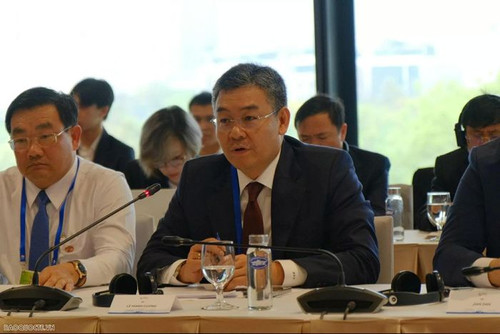 |
| Le Manh Cuong, Vice Chairman of Vietnam National Industry - Energy Group speaks at the session (Photo: baoquocte.vn) |
PVN has also piloted research projects on offshore wind energy, green hydrogen, green ammonia, and carbon capture, utilisation, and storage (CCUS) — an important preparation for the group’s long-term emission reduction strategy.
Notably, the group has proactively developed and implemented an energy transition roadmap, integrating sustainable development goals, energy security, and net-zero emissions into its development strategy.
Affirming the PVN’s strong commitment to green energy, he emphasised that the group will continue to invest more effectively, greener, and cleaner in traditional energy; promote development of new energy sources such as green hydrogen, LNG-to-power, energy storage, and system digitalisation; and foster internal innovation and develop high-quality human resources to lead global technology trends.
Contributing to a more effective, substantial, and sustainable energy transition
While highly appreciating Vietnam’s innovative solutions promoting effective and sustainable energy transition within the P4G 2025 Summit framework, Armida Salsiah Alisjahbana, Executive Secretary of the United Nations Economic and Social Commission for Asia and the Pacific (UNESCAP), noted that although there has been much progress in responding to climate change, the world still faces difficulties and challenges.
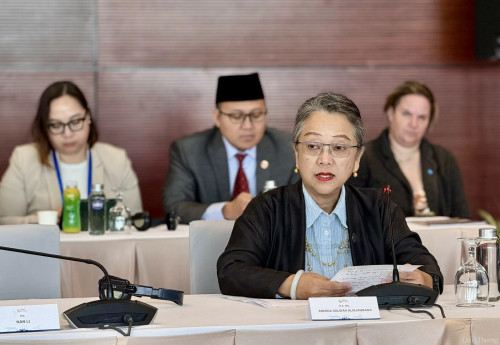 |
| Armida Salsiah Alisjahbana, Executive Secretary of the United Nations Economic and Social Commission for Asia and the Pacific, speaks at the session (Photo: congthuong.vn) |
These include large energy emissions pushing Earth’s temperature in 2024 up more than 1.5 degrees compared to before, while fossil energy still dominates and there is limited access to renewable energy.
“However, there are optimistic signs as P4G countries, especially in Asia-Pacific such as Vietnam, are continuously scaling up renewable energy with wind and solar power accounting for 25% of production, reflecting efforts and vision in development, environmental protection, improving electricity consumption efficiency, and helping governments find technology and outline strategies to achieve development goals,” the executive secretary said.
She added that energy transition is not only about energy sources but also involves many comprehensive aspects including finance, technology, legal policies, green finance models, new technology in transport to reduce greenhouse gas emissions, public-private partnerships, as well as international and regional cooperation to jointly act for sustainable, effective, and equitable goals.
Sharing the same view, Chandan Singh, Country Managing Director of Hitachi Energy Vietnam, said innovative solutions and new technology applications to enhance efficiency and sustainability in energy development and use include grid interconnection (allowing energy exchange, balancing supply and demand over larger areas, and optimising renewable energy use); energy storage (essential for grid stability and reliable energy supply); smarter grid infrastructure (supported by AI and latest software, smarter grids extend asset life, improve energy management, and provide accurate load forecasting).
“I think Vietnam could consider cooperating with us on deploying a decarbonised national grid and expanding more incentive policies to effectively attract investors,” he recommended.
For his part, Andrew Fairthorne, CEO of Stride Singapore in Vietnam, affirmed the Group’s commitment to investing sustainably and efficiently in Vietnam, especially ensuring environmental protection and renewable energy development goals. This includes building green constructions, deploying rooftop solar power to save electricity in industrial parks, applying AI and smart energy management to optimise solar energy, and using electric vehicles in industrial zones.
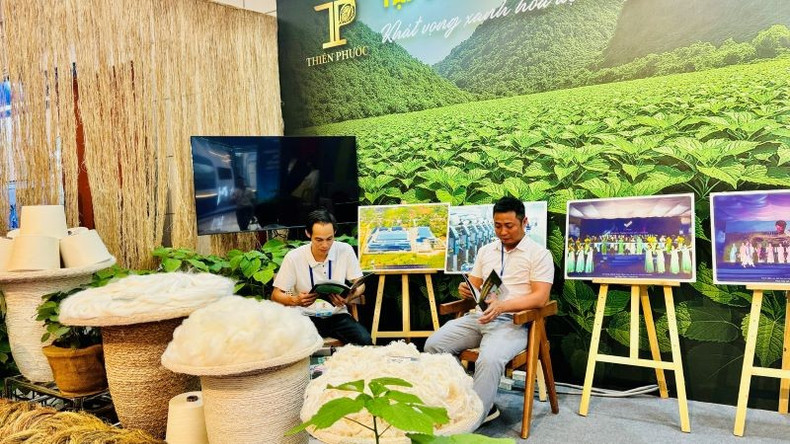 |
| Vietnam’s environmentally friendly green production models displayed within the framework of the P4G 2025 Summit. (Photo: HNV) |
Meanwhile, Jerrod Moodley, a finance specialist from Just Energy Transition, updated participants at the session about financial models for small households to access solar energy, which has been operated in Vietnam to support disadvantaged communities, especially microfinance and green finance.
These models have proven to be effective solutions in the green, clean energy transition journey.
He also introduced new financial instruments to secure credit, especially for private sector energy transition projects.
